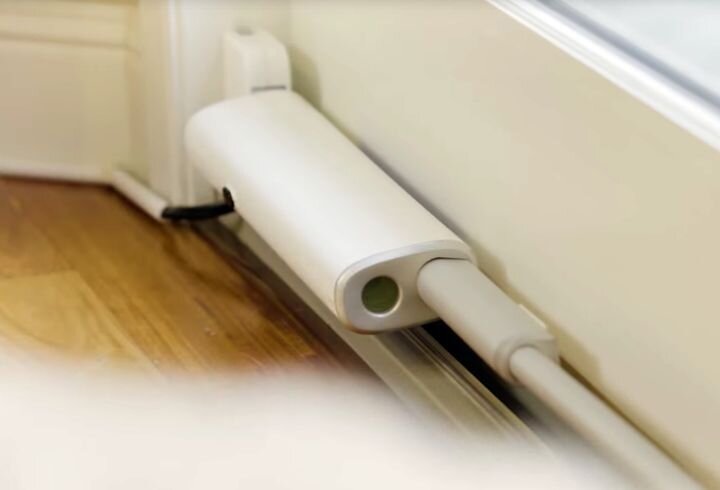![The Wayzn Slide can automatically open patio doors for pets [Source: Wayzn]](https://fabbaloo.com/wp-content/uploads/2020/05/image-asset_img_5eb08c091bd4d.jpg)
I’m looking at an interesting project undertaken by Protolabs, the well-known manufacturing service.
The project in question is the curiously-named “Wayzn Slide”, a smart robotic door opening system designed for pet access. It’s a mechanism that attaches to a standard sliding door and can open and close the door automatically. It does this through a set of sensors or via remote command through a smartphone. This gives your pet a “Wayzn”. Protolabs explains how it works:
“Wayzn Slide is a low-profile, powered opener that can be placed just above the track of a sliding door and attaches to both the door and jamb. The high-tech device connects securely to the internet via WiFi. If a dog wants to go in or out, the owner is alerted and can simply push a button on a smartphone, which sends a signal to the device’s motor. The motor pulls the door open just enough to let the pet in or out, then closes it.”
The project was considered sufficiently interesting and valuable to garner not only Protolabs “Cool Idea” award, but also a CES 2020 Innovation Award. It looks to be a system that could easily work in almost every home with a patio door, and can be self-installed as well.
![The Wayzn Slide concept: pet, owner and smartphone [Source: Wayzn]](https://fabbaloo.com/wp-content/uploads/2020/05/image-asset_img_5eb08c0987dc7.jpg)
For a venture like this to succeed in such a way demands some investigation into how they achieved their goals.
Like many product ventures these days, the Wayzn folks are not manufacturers; they are product designers and marketers. They had to rely on outside expertise to help with the physical build of the product. In this case, they turned to Protolabs for that help.
According to Protolabs:
“Protolabs made it possible for Wayzn to rapidly prototype enclosures and mechanical components using 3D printing stereolithography technology.
Protolabs printed the various components under normal resolution in an ABS-like material, Accuar Xtreme White. Additional custom finishing was completed by sanding and painting key components to have the appearance of end-use injection molded components.”
Protolabs apparently managed to 3D print 156 copies of 13 different parts in eight days of iterative work with Wayzn. During this iteration, they helped Wayzn refine the design of the parts to ensure they were mass-manufacturable at reasonable costs.
This work enabled Wayzn to very quickly develop their product and it seems that effort paid off. With the award at CES, they are set to sell a great many units to the public. And that’s within a market of tens of millions of homes that own pets.
The amazing part to me is that services like Protolabs’ are at the ready to assist startup companies in developing radically new products and ensure they are positioned for the next steps in their corporate journey.
Years ago this entire sequence of events — and particularly the speed in which it was done — would have been a complete fantasy. Now, it’s a routine event.
I expect that in years to come those of us from today will be similarly astonished at what manufacturing services will be able to achieve given the likely advances in 3D printing processes and technologies.
Via Protolabs

